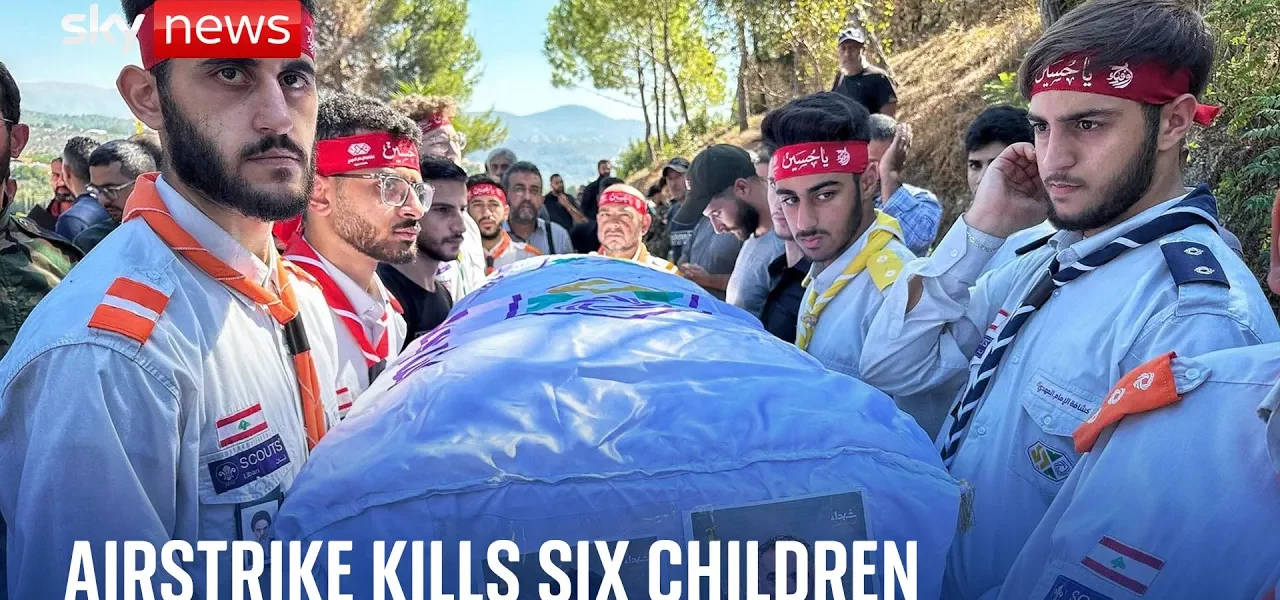The Ongoing Humanitarian Crisis: Israeli Bombing of Lebanon

This article explores the devastating impact of the Israeli bombing on civilians in Lebanon, highlighting the tragic loss of life, particularly among children, and the urgent calls for a halt to violence amidst escalating tensions.
Introduction
The Israeli bombing of Lebanon has escalated significantly, leading to a humanitarian crisis that continues to unfold. With bombs falling relentlessly, the global demand for a cessation of hostilities has grown louder. This article examines the recent events that have led to increasing civilian casualties, the emotional toll on families, and the broader implications for the region. The tragic story of families caught in the crossfire underscores the urgent need for international attention and action.
The Human Toll of Conflict
In the wake of relentless airstrikes, the human cost of the conflict has become painfully clear. In just the past 24 hours, new areas have been targeted, resulting in additional casualties, including children.
Tragic Loss of Innocence
Among the most heartbreaking stories is that of a six-year-old boy named Hassan, who lost his life alongside his mother and father during an airstrike. His elder brother, Ahmed, who helped carry their coffins, was rescued from the rubble but sustained injuries. Another brother, 15-year-old Yousef, also survived, highlighting the fragility of life in this conflict.
Displacement and Destruction
The village where this tragedy occurred is situated 60 km from the front line. The local community, already reeling from the impact of ongoing violence, had recently taken in over a thousand displaced individuals from areas further south. The communal shock is palpable as families mourn their losses, emphasizing the interconnectedness of their fates in this devastating conflict.
- Six children killed
- Three mothers lost their lives
- Entire families displaced
Claims and Counterclaims
The Israeli government has asserted that their military operations target Hezbollah militants and their infrastructure. However, many in Lebanon view these actions as indiscriminate attacks on civilians.
Civilian Infrastructure Under Attack
Reports indicate that the airstrikes have destroyed not only residential homes but also businesses and emergency services, which should be protected under international law. The Ministry of Health has reported that doctors, ambulance crews, and firefighters have suffered casualties, raising serious concerns about the conduct of military operations.
Perspectives from the Ground
A firefighter, who requested anonymity for safety reasons, expressed his fear and dismay at being targeted while attempting to help those in need. This sentiment is echoed by many who believe that humanitarian workers should be safeguarded in accordance with international standards.
The Call for Ceasefire
Amidst the devastation, calls for a ceasefire have emerged, but they have yet to be acted upon by either side. Hezbollah has indicated that its attacks on Israel will continue until a ceasefire in Gaza is achieved.
Voices of the Mourners
Families grieving their losses assert that any ceasefire should not be contingent on conditions that prolong suffering. The sentiment is clear: the cycle of violence must end to prevent further loss of life.
Potential Consequences of Continued Conflict
The ongoing violence poses a grave threat not only to Lebanon but also to Israel. Experts warn that a full-scale war could lead to unprecedented destruction and loss of life on both sides. The international community must intervene to avert a humanitarian disaster.
Conclusion
The situation in Lebanon is dire, with civilian casualties mounting as airstrikes continue unabated. The heartbreaking stories of families like Hassan’s serve as a stark reminder of the human cost of conflict. Urgent calls for a ceasefire must be heeded to prevent further tragedy and allow for humanitarian aid to reach those in desperate need. It is imperative that the international community takes action to facilitate dialogue and restore peace in the region. We urge readers to stay informed and advocate for an end to the violence.
“`




